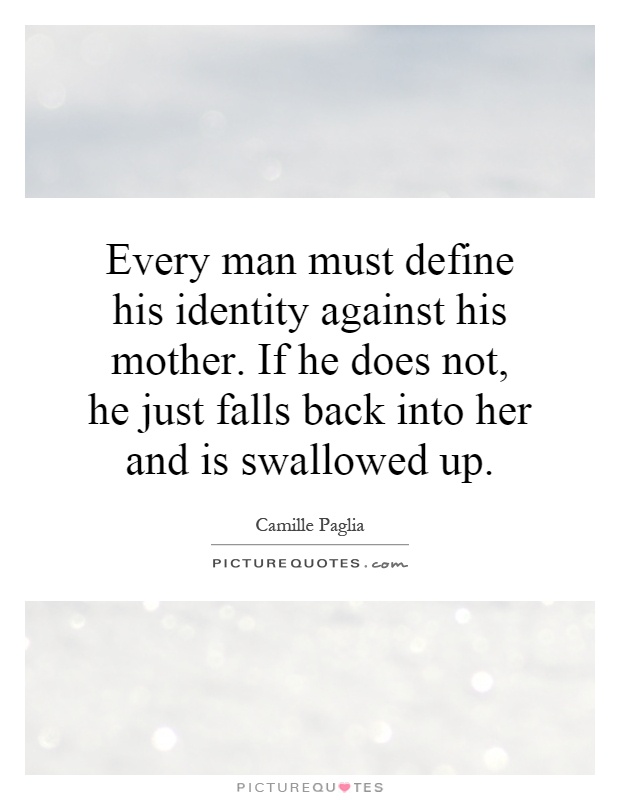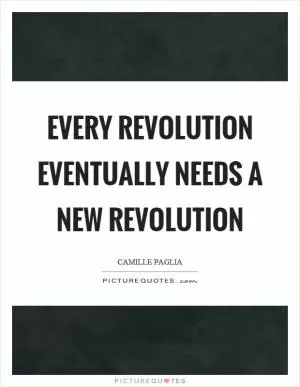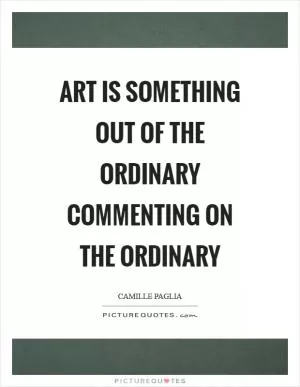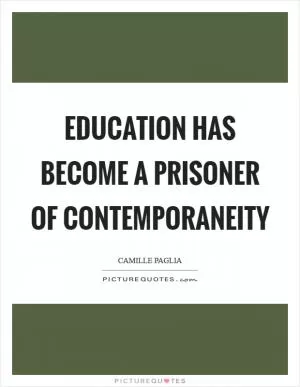Every man must define his identity against his mother. If he does not, he just falls back into her and is swallowed up

Every man must define his identity against his mother. If he does not, he just falls back into her and is swallowed up
Camille Paglia, a renowned feminist and cultural critic, has often explored the complex dynamics of gender and identity in her work. One of her most provocative statements is the idea that "every man must define his identity against his mother. If he does not, he just falls back into her and is swallowed up." This statement challenges traditional notions of mother-son relationships and suggests that in order for a man to truly establish his own identity, he must differentiate himself from his mother.Paglia's assertion can be interpreted in a variety of ways. On one level, it speaks to the psychological process of individuation, where individuals separate themselves from their primary caregivers in order to develop a sense of self. In this sense, defining one's identity against one's mother can be seen as a necessary step in the journey towards self-discovery and autonomy.
Furthermore, Paglia's statement can also be understood in a broader cultural context. In many societies, mothers are often seen as nurturing and protective figures, while fathers are associated with authority and independence. By defining his identity against his mother, a man may be asserting his masculinity and asserting his independence from the feminine influence in his life.
However, it is important to note that Paglia's statement is not without controversy. Some critics argue that it reinforces traditional gender roles and perpetuates the idea that men must distance themselves from women in order to be truly masculine. Others argue that it overlooks the complexity of mother-son relationships and the ways in which they can be sources of strength and support.
Ultimately, Paglia's statement challenges us to rethink the ways in which we understand gender and identity. It encourages us to consider the ways in which our relationships with our parents shape who we are and how we navigate the world. Whether one agrees with her perspective or not, it is clear that Paglia's ideas continue to provoke thought and discussion on these important issues.












 Friendship Quotes
Friendship Quotes Love Quotes
Love Quotes Life Quotes
Life Quotes Funny Quotes
Funny Quotes Motivational Quotes
Motivational Quotes Inspirational Quotes
Inspirational Quotes